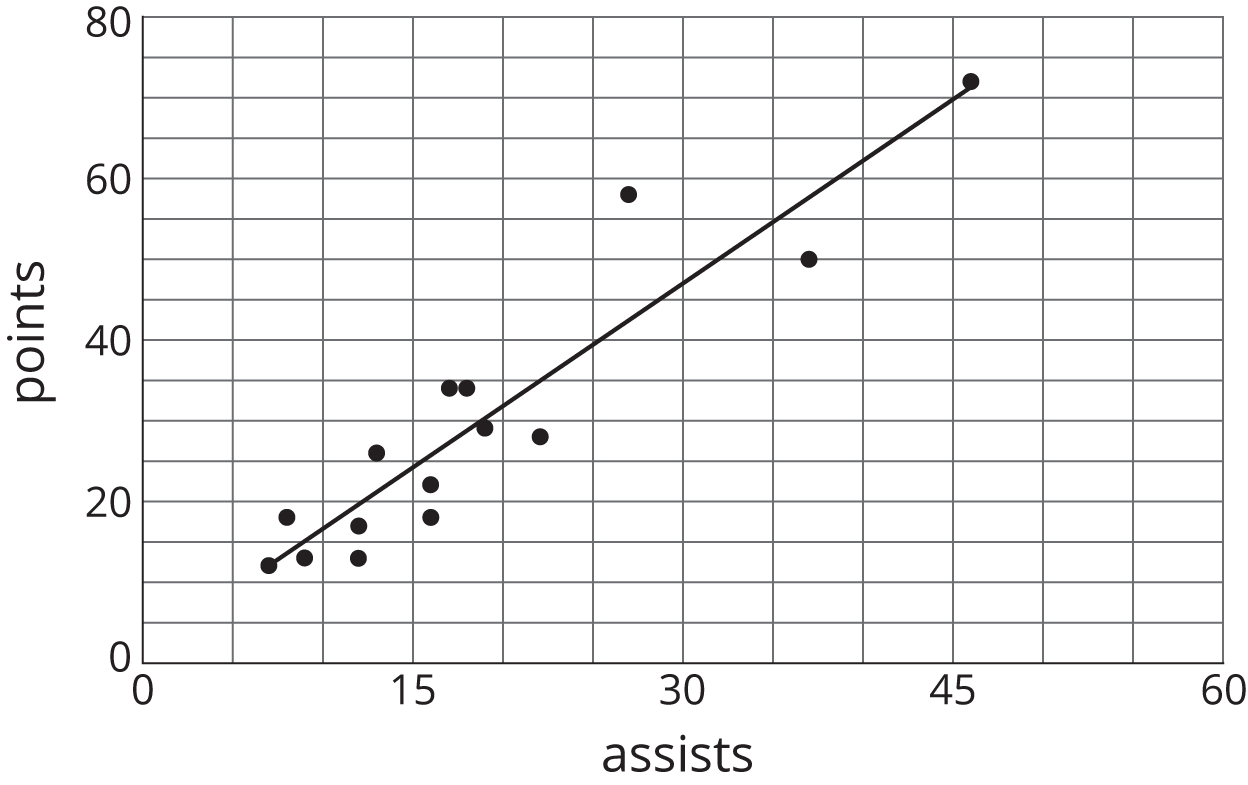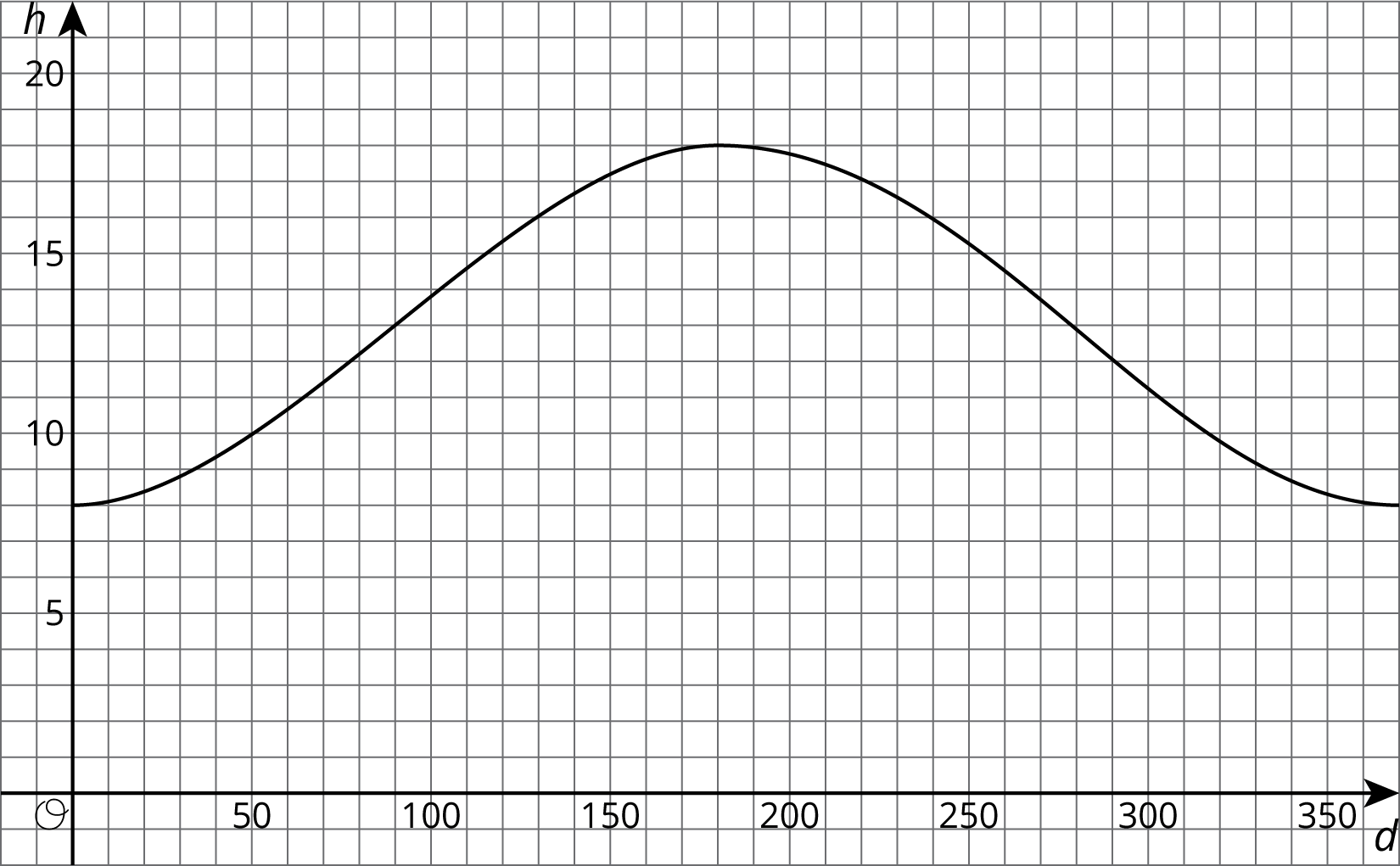Lesson 10
Representing Large Numbers on the Number Line
Let’s visualize large numbers on the number line using powers of 10.
Problem 1
Find three different ways to write the number 437,000 using powers of 10.
Problem 2
For each pair of numbers below, circle the number that is greater. Estimate how many times greater.
- \(17 \boldcdot 10^8\) or \(4 \boldcdot 10^8\)
- \(2 \boldcdot 10^6\) or \(7.839 \boldcdot 10^6\)
- \(42 \boldcdot 10^7\) or \(8.5 \boldcdot 10^8\)
Problem 3
What number is represented by point \(A\)? Explain or show how you know.

Problem 4
Here is a scatter plot that shows the number of points and assists by a set of hockey players. Select all the following that describe the association in the scatter plot:

Linear association
Non-linear association
Positive association
Negative association
No association
Problem 5
Here is the graph of days and the predicted number of hours of sunlight, \(h\), on the \(d\)-th day of the year.

-
Is hours of sunlight a function of days of the year? Explain how you know.
-
For what days of the year is the number of hours of sunlight increasing? For what days of the year is the number of hours of sunlight decreasing?
-
Which day of the year has the greatest number of hours of sunlight?